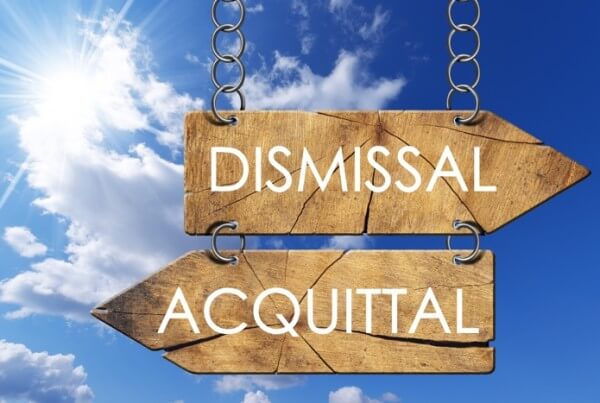This issue was recently addressed by the 13th District Court of Appeals in State v. Almendarez.
The 5th Amendment to the United States Constitution provides, in relevant part, “nor shall any person be subject for the same offense to be twice put in jeopardy of life or limb.” Many times there are civil and criminal penalties for certain actions, such as the administrative suspension of one’s driver’s license in addition to a subsequent prosecution for DWI. Do civil penalties violate the double jeopardy clause?
As a general rule, the 5th Amendment’s prohibition on double jeopardy does not bar remedial civil proceedings based on the same offense as a prior criminal prosecution, or vice versa. State v. Solar, 906 S.W.2d 142 (Tex. App. – Fort Worth 1995, pet. ref’d). The U.S. Supreme Court provided, “whether a particular punishment is criminal or civil is, at least initially, a matter of statutory construction.” Hudson v. U.S., 522 U.S. 93 (1997). However, even if intended by Congress to be civil in nature, the double jeopardy clause may be triggered if the “statutory scheme is so punitive either in purpose or effect as to transform what was clearly intended as a civil remedy into a criminal penalty.” Rodriguez v. State, 93 S.W.3d 60 (Tex. Crim. App. 2002).
In order to evaluate whether the effects of the statute are criminally punitive, courts generally look to the non-dispositive factors set forth by the Supreme Court in Kennedy v. Mendoza-Martinez, 372 U.S. 144 (1963), and restated by the Court in Hudson. Termed the “Hudson factors,” courts should consider:
- whether the sanction involves an affirmative disability or restraint;
- whether it has historically been regarded as a punishment;
- whether it comes into play only on a finding of
scienter; - whether its operation will promote the traditional aims of punishment-retribution and deterrence;
- whether the behavior to which it applies is already a crime;
- whether an alternative purpose to which it may rationally be connected is assignable for it; and
- whether it appears excessive in relation to the alternative purpose assigned.
- Termination of a person’s rights to a horse and order to reimburse State for expense incurred in seizing horse did not constitute punishment and does not bar a subsequent criminal prosecution for animal cruelty and neglect.
State v. Almendarez, ___ S.W.3d ___ (Tex.App. – Corpus Christie 2009). - Trial for termination of parental rights is a civil proceeding with a remedial result – protecting abused and neglected children – and does not trigger jeopardy bar to subsequent criminal prosecution for aggravated sexual assault of a child.
Malone v. State, 864 S.W.2d 156 (Tex.App. – Fort Worth 1993, no pet.). - An administrative license suspension did not constitute punishment and therefore did not implicate the protections against double jeopardy in regard to a subsequent DWI prosecution.
Ex parte Tharp, 935 S.W.2d 157 (Tex. Crim. App. 1996). - Texas’ civil asset-forfeiture scheme did not constitute punishment and therefore did not implicate the protections against double jeopardy in regard to a subsequent prosecution for the offense underlying the asset forfeiture.
Fant v. State, 931 S.W.2d 299 (Tex. Crim. App. 1996). - Disciplinary actions brought against an attorney did not constitute criminal punishment to bar subsequent criminal proceedings.
Capps v. State, 265 S.W.3d 44 (Tex.App. – Houston [1st Dist.] 2008, pet. ref’d). - Cancellation of defendant’s alcoholic beverage license because he lied on the application did not constitute punishment and therefore did not bar his subsequent prosecution for making false statements on the application.
Ex parte Sheridan, 974 S.W.2d 129 (Tex.App. – San Antonio 1998, pet. ref’d).










